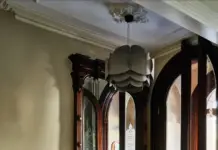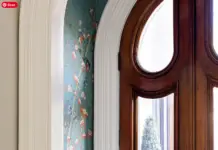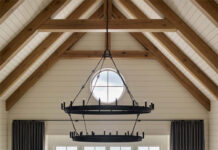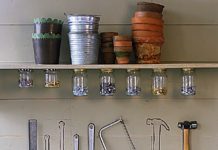If you are looking to get rid of ants invading your home, here are all the facts that you need to know!
Our homes are one of the most significant parts of our lives, and they must be free of all kinds of infestations. The condition of our homes has a huge effect on our well-being, and we must ensure we live in a healthy and clean environment. Comfortable and organized homes allow us to properly destress, which, in turn, helps us be more productive and positive.
Having an ant infestation at home can make us feel uncomfortable as they can be a big nuisance. So if you are looking to make sure your home is free of ants, we are here to help you with all the information you need to know to get rid of house ants.

1. Are Ants Really a Problem?
Ants are a big part of our ecosystem and biodiversity. Estimates show that there are around 10 billion ants on earth, and they often end up invading our homes. But are they truly dangerous?
Although being an annoyance, ants are generally harmless. However, some ants can “cause food poisoning with bacteria, harm buildings by hollowing out timber for nests (structural damage is really very particular to carpenter ants) and also can cause a stinging sensation (fire ants),” according to Tim Husen, Orkin entomologist and technical services manager.
It is advisable to find out if the ants in your home are innocuous or if they are actually harmful, and checking with your county or regional Extension Service office can be of help.
2. Why Have Ants Invaded Your Home?
Ants are usually creatures that live outdoors, but certain instances can drive them indoors. They tend to come into our homes searching for food or shelter, and they get in through the cracks in our doors or windows. In general, food crumbs, even in small amounts, are what attracts ants to come marching into our homes. As ants are in constant search of food and water for their colonies, most ant infestations can be found in our kitchens and bathrooms.
Comprising about 13,000 species, ants are part of nature’s cleaning crew, and when they enter our homes, they help get rid of any and all morsels of food. However, despite their efficient cleaning methods, the presence of ants in our personal space can be a problem.

3. Understanding the World of Ants
Despite having brains that are as small as a grain of sand, ants are good at finding and collecting food because they are experts at working together. Ants are social creatures that live in colonies of hundreds, if not millions. Ants can easily detect food, and only one ant is required to locate the food and establish a trail. Hundreds of other ants can then follow the trail to the food source.
Consider how ants shape a line to reach a single grain of sugar on your kitchen counter. Some species of worker ants react by dropping a tiny droplet of pheromone on the ground when they find a tasty piece of food. They leave a pheromone trail that leads all the way back to the nest.
4. What Should You Do to Prevent Ant Infestations?
Ants are surely an inconvenience, and to prevent ants from entering your home, you need to make sure your home is clean and sanitized. It is advisable that you:
- Clean up food spills as soon as possible before ants find them.
- Refrigerate ripe fruit and keep all other foods in airtight containers.
- Clear the garbage cans (inside and outside your home)
- Keep pet bowls clean and any spilled food or water away from them.
- Inspect indoor potted plants daily for any insect activity.
In addition to these, you need to make sure ants cannot enter your home. Seal any holes in windows and doors and cracks in the base of the building. You can try:
- Using crushed stone or rock around your house instead of mulch or pine straw to prevent ants from breeding in garden beds, and maintain a mulch-free zone under the house’s perimeter.
- Repairing leaking water pipes and ensuring adequate water drainage away from your house (clean gutters and landscape drainage systems).
- Using a silicone-based caulk to fill in cracks and crevices in your home.

5. Are DIY Methods Useful?
Additionally, if you don’t want to resort to insecticides and chemicals, you can try some do-it-yourself methods. Cleaning with vinegar and essential oils (peppermint, tea tree, and lemon, for example) will help repel ants in a more natural way. Ants are deterred from entering the building if you sprinkle cayenne pepper around the cracks.
Some people claim to have had success with lemon juice, coffee grounds, baby powder, or orange peels in ant-infested areas. However, as with anything, outcomes can differ. Liquid ant baits can be very effective at minimizing foraging ants in the house for a limited period. Boric acid dust, Dry baits, diatomite, and other unstable botanical extracts are inactive.
6. Should You Call a Professional Pest Controller?
If DIY techniques aren’t helping, perhaps it would be necessary to hire a specialist. As DIY methods can sometimes make the situation worse, a licensed pest control professional might be the better option. They will be able to properly identify the ant species and recommend the type of treatment that will work.

Conclusion
Our homes are our safe space, a place where we can relax and destress, and the presence of unwelcome guests can be bothersome. But we do need to remember that ants are an essential part of our ecosystem as they help clean up trash and spread plant seeds, so we need to be mindful of whether the ants invading our homes are actually harmful or not.
If you find that the ants crawling through your house are dangerous, you can employ the DIY methods to help you out or you can call a professional pest controller. Thanks to buglord.com for consulting.
























